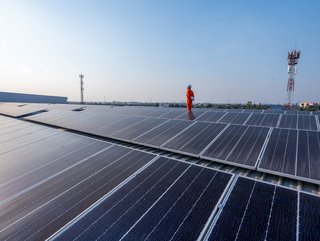Huawei awarded a landmark Carbon Footprint Verification

Huawei has been awarded a Carbon Footprint Verification (CFV) for its solar inverter products, by the British Standards Institution (BSI).
Beyond being a fantastic indication of the company’s sustainability commitments, this is also a landmark occasion for all telecoms companies.
This BSI verification is the first of its kind to be awarded in the world - demonstrating one of many ways in which the telecoms sector is leading the sustainable pack.
Huawei’s future sustainability strategy
In China, the solar PV industry is experiencing a rapid period of growth, fuelled by the country’s target of carbon neutrality by 2060.
Solar power will, inevitably, play a critical role in the world’s environmental sustainability targets. Both public enterprises and private manufacturing companies across the globe are increasingly dependent on renewable energy sources.
However, according to the Clean Production of Solar PV in China report, current PV energy plants do not initially translate into carbon reduction.
The report revealed that PV energy plants cannot reach net zero carbon emissions for 1.3 years of their 25 year lifecycle.
The drive to hit the net zero mark has renewed investments into the decarbonisation of energy systems. Now, manufacturers are finding increasingly innovative solutions to help manage the carbon emissions created during the manufacturing of PV systems.
In a recent statement, Huawei celebrated this landmark verification, and discussed its plans to enhance its sustainability accreditations further.
“This CFV proves Huawei's capability to evaluate the carbon footprint of products throughout their lifecycle and acknowledges Huawei's efforts in reducing carbon emissions, increasing the share of renewable energy, and promoting circular economy.”
“It is of great significance to establish and develop a carbon footprint management system in the photovoltaic (PV) industry.”
“Looking ahead, Huawei will continue to strengthen its low-carbon capabilities, use innovative technologies to develop more products with low carbon footprints, and accelerate carbon emission reduction for itself and its customers, moving towards a sustainable, greener, and better future together.”
About the British Standards Institution
The BSI is a globally-recognised standards body, acting as a special adviser for the United Nations Framework Convention on Climate Change. The body also produces a number of new sustainability standards, including the world's first carbon footprint standard PAS 2050.






